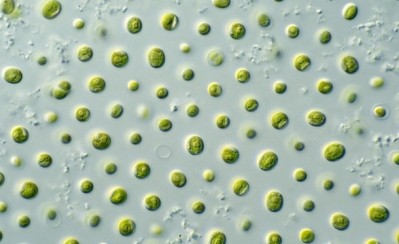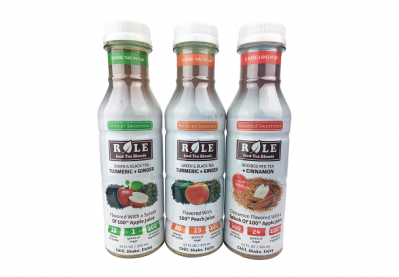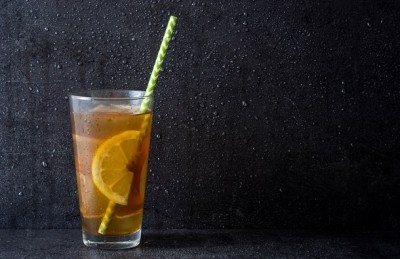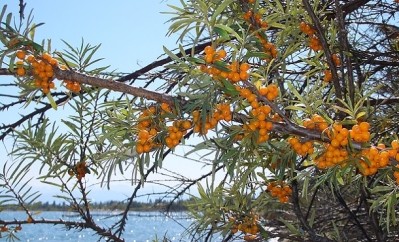Could Hawaiian māmaki be the new super leaf? Shaka Tea shakes things up with RTD tea line
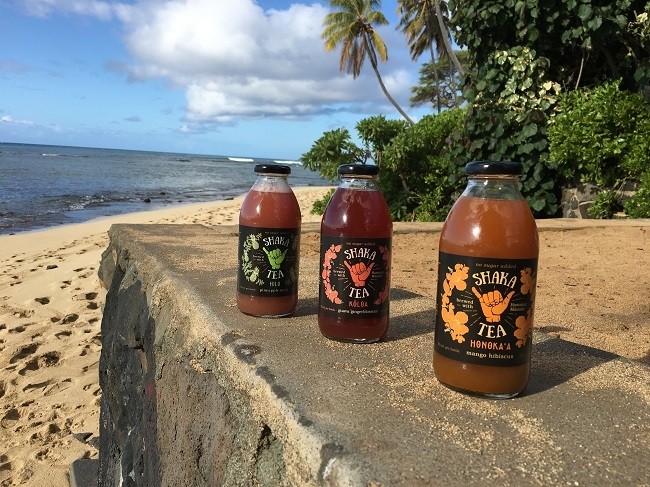
Māmaki, also known by its scientific name Pipturus albidus, grows in a bush throughout the Hawaiian Islands and is classified as part of the nettle family.
Most importantly, the māmaki plant is native as well as endemic to Hawaiian archipelago, “which I think makes it pretty special,” Shaka Tea co-founder, Bella Hughes, told BeverageDaily.
Growing up in Hawaii, Hughes explained that māmaki is very well-known within Hawaiian culture where its main usage has always been for tea.
What first started out as an at-home beverage Hughes and her husband Harrison Rice would make for themselves and their two children in the family’s Honolulu home turned into something much bigger. The husband-and-wife team experimented with different flavor combinations, such as adding pineapple or guava to the māmaki tea.
“This was really something that we just enjoyed ourselves,” Hughes said.
“We realized this would be a really great business. My business partner -- and husband -- and I began waking up at 3 a.m. to make our own tea.”
The tea line was first launched in March and is available in 50 stores across Hawaii for a SRP of $2.99 per 16-ounce glass bottle. The tea comes in three tropical flavors: guava gingerblossom, pineapple mint, and mango hibiscus, and they are all sweetened with organic apple juice concentrate.
Giving Back
Shaka Tea donates 3% of its profits to support Ho'oulu 'Aina, an organization that addresses the health needs of Kalihi Valley.
A new super leaf?
Peer-reviewed studies conducted by the University of Hawaii found that māmaki contains a host of macro and micro minerals in addition to a high amount of antioxidants. Researchers found that mamaki leaves contained three health-boosting phenolic acids i.e. Catechins, chlorogenic acid, and rutin.
The concentration of alleged metabolism-boosting catechins in māmaki leaves was higher than those found in Gyokuro green tea leaf, China oolong tea leaf, and Kenya black tea leaf, the study said.
The study also found that when the māmaki leaves are brewed for a longer period of time, the tea yielded a greater level of antioxidants and nutrients.
Shaka Tea brews its tea for a longer period of time to ensure the highest amount of antioxidants and minerals in each serving.
Bringing māmaki closer to all consumers
Geographically, Hawaii is the most isolated land mass in the entire world. And for its size, Hawaii has the highest percentage of species that exist nowhere else on Earth including māmaki, according to the book Hawaii: the Big Island.
In order to bring māmaki in the form of RTD tea, ensuring shelf stability was essential in the R&D process for the bottled beverage.
“It’s a different scope when you want to make it RTD,” Hughes said. “We wanted to make sure that the product would be accessible beyond the Hawaiian Islands.”
Working with co-packers located in Northern California, Shaka Tea went through a year of development to make a shelf stable māmaki RTD tea that maintained the flavor profile of the rare Hawaiian plant.
Hughes said that company hopes to expand distribution to the West and East coasts of the US in addition to setting up an online Amazon store.
